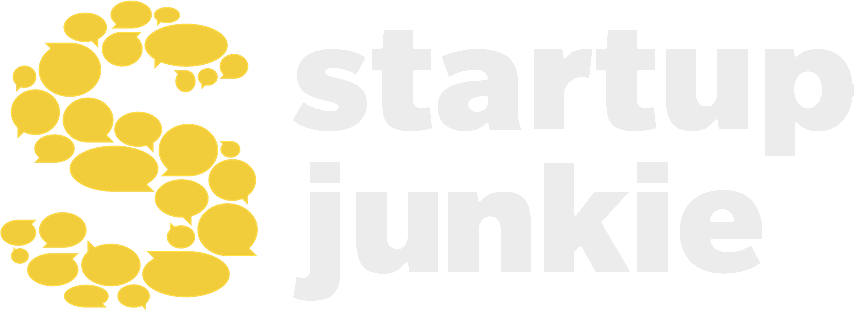Hey everyone! This is another special week with your Startup Junkie Crew. This week, Caleb Talley, Jeff Amerine, and Matthew Ward have an insightful call with Steve Case, co-founder of AOL and CEO of Revolution. Revolution is a venture capital firm that helps entrepreneurs build the next generation of transformative companies outside of Silicon Valley. In this episode, you will get to hear about barriers around private investment activity, important aspects of developing a venture ecosystem, and opportunities exposed by COVID-19. You do not want to miss out on this valuable episode!
Shownotes
(1:37) Why startups should receive economic relief from the government
(2:57) Steve’s background in building venture ecosystems
(6:11) The balance between opening more investment opportunities and protecting investors
(10:32) How to jumpstart a new venture ecosystem
(17:02) The importance of a partnership between large, flagship companies and startups
(20:28) Future hotbed cities for startup culture
(31:19) Steve shares example of innovation happening during the pandemic
(34:55) Steve’s advice for his younger self
Links
The Third Wave: An Entrepreneur’s Vision of the Future
Quotes
“It’s not just focusing on leveling the playing field in terms of place, but also in terms of people. If you look at that data, last year less than 10% of venture capital went to female founders. Over 90% went to male founders, and less than 1% went to Black founders, even though Black Americans represent 13% of our country.” (4:35)
“We think it’s critically important for each of the communities because of the roles startups play in creating jobs. But more broadly for a country, if we’re going to have a more inclusive innovation economy where more people and more places feel like they’re a part of it.” (5:16)
“The third is really a cultural piece, which is how do you create, in these communities, a real sense of possibility, of optimism; champion entrepreneurs, support the startup community.” (13:21)
“One data point I remember being startled by a decade ago when I started getting into this is about half of the fortune 500 companies turn over every 25 years….So as a community, if you’re just focused on your existing companies, and you’re not focused on new companies, just statistically, about half of those aren’t going to be there 25 years from now.” (15:05)
A Revolution that Matters – Steve Case is Spreading the Startup Movement Across the U.S.
This week, Startup Junkies podcast had the opportunity to talk with Steve Case, an entrepreneur, investor, and startup advocate. Steve is the co-founder of America Online (AOL), chairman and CEO of Revolution, and the author of The Third Wave: An Entrepreneur’s Vision of the Future.
Steve joined the Startup Junkies to discuss startups’ importance to the American economy and jumpstarting venture ecosystems.
Startups: Essential to the American Economy
Throughout the conversation, Steve made sure to emphasize the vitality of startups to America’s economic stability. Part of his assertion is startups’ role as innovators and job creators. If Americans want to see more jobs open up, they need new businesses to create these opportunities. Economic advancement also requires innovation and progress, which startups often supply in plenty, as opposed to large, established companies that commonly focus on maintaining a certain level of business. Startups can act on the offensive, while scaled businesses are typically required to operate on the defensive as they focus primarily on management.
Startups are also necessary to advance the economy, as nearly “half of the Fortune 500 companies turn over every 25 years” (15:10). If there is not adequate attention given to startups and growing businesses, communities will miss out on the opportunity for progress.
It is crucial for communities to diversify their investment in established companies and to include startups. One example of this is Detroit in the 1950s. Suppose the people of Detroit had known what was coming in the 70s. In that case, they might have focused on diversifying their economy rather than relying entirely on their auto industry success. In the same way, communities today should not rely on companies’ success in a single economic sector. Instead, they should diversify their economic reliance onto as many different industries as possible, which can be done by investing in startups.
The large, established companies can also benefit from startups. Now more than ever, it is crucial for large companies to stay agile and relevant. By connecting with smaller startups, big companies can “create interesting opportunities to accelerate their own growth and make sure they remain a leader” (19:04).
Jumpstarting Venture Ecosystems
When it comes to the subject of spurring new venture ecosystems, Steve is an expert. He mentions three critically important pieces to accomplishing this goal: capital, talent, and culture.
Obviously, capital is an essential piece to energizing a venture ecosystem, but it is not always a simple goal to accomplish. It can be challenging to find investors in a community that lacks a flourishing venture element. It is all about finding ways to take capital from other sectors of the community’s economy and convincing people to look into investing in startups as a potential.
The second piece to jumpstarting this ecosystem is finding talent within the community to be innovative and push for progress. In the past, places like Silicon Valley have thrived because they attract talent worldwide. Now, the country is entering a phase where the talent is choosing to return home, creating new talent pools in communities previously unable to grow healthy venture ecosystems.
Lastly, culture is a vital part of growing a thriving startup community. To attract talent and capital, communities must promote a real sense of possibility. By creating a culture of optimism and promoting progress, communities can attract and locally grow the talent necessary for creating a booming, diverse startup sector.
